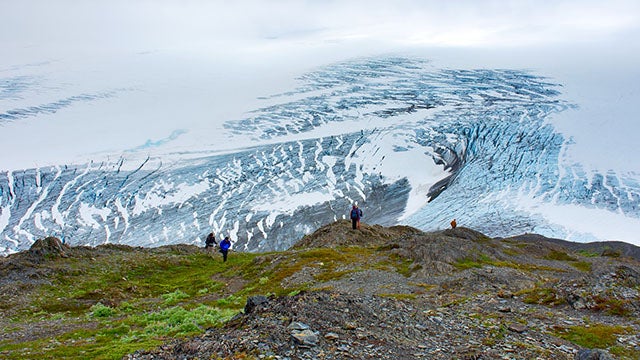Education can, and should be, a driving force for climate action. Yet, we often underutilize the education sector in the fight against climate change and the work to build resilient communities. That is why in 2020 we—a former governor and administrator of the federal Environmental Protection Agency, and a former US Secretary of Education—signed on as co-chairs of the K12 Climate Action Commission.Two years ago, our commission—composed of youth, parents, educators, school leaders, advocates, researchers, policymakers, and more—set out to listen and learn about the needs and opportunities for schools to move toward climate action. We embarked upon a national listening tour that led to our action plan to support our K-12 schools in advancing climate action, solutions, and environmental justice. Throughout the resulting K12 Climate Action Plan, we identified the opportunity for the education sector to take action and to prepare today’s students to lead a sustainable future and succeed in a clean economy.Just one year after the plan’s release, we have heard from students, educators, and school leaders across the country who have mobilized their communities to take climate action. We are delighted to hear of success stories ranging from school districts like Prince George’s County, Maryland to Hopewell Valley, New Jersey, and from Miami-Dade, Florida, to Dallas, Texas to Los Angeles, California. Coalitions of passionate individuals are developing and implementing climate action plans in their school districts. We recently heard about a student in Idaho who was tired of school board inaction on clean energy, running for and winning a seat on the school board. We’ve also seen new laws passed in states like Massachusetts supporting renewable energy investments in schools. At the federal level, Congress passed and President Biden signed the bipartisan Infrastructure Investment and Jobs Act and the recent Inflation Reduction Act. These laws provide historic investments and opportunities for our school districts to transition to clean renewable energy, electrify our bus fleets, and transition schoolyards from heat-trapping asphalt to green sustainable schoolyards. Yet, our work is just beginning.Learning does not begin or end with K-12, nor does it exist within the confines of school walls.
As such, we are excited to announce the launch of This is Planet Ed. Building upon the success of K12 Climate Action, This Is Planet Ed will aim for broad mobilization across the education sector in both formal and informal settings. With three new strands of work, we will continue our work in the K-12 sector while expanding our efforts to consider opportunities for the early years, higher education, and children’s media sectors to contribute to the fight.
This is Planet Ed envisions an education system in which children and youth of all ages, from birth to postsecondary, thrive in their communities and are empowered to take meaningful action. Specifically:
- Early Years Climate Action will explore how the early years sector can support young children ages 0 to 8 to flourish despite facing the impacts of climate change.
- K12 Climate Action will continue to support students through their educational journeys by assisting school districts in developing and implementing local climate action plans.
- Higher Education Climate Action will prepare students to succeed in the clean economy, to innovate, and to deploy climate solutions.
- Climate Media for Kids will harness the reach and influence of the media to support children and their families in building scientifically-grounded awareness and understanding of climate science, solutions, and sustainability.
This Is Planet Ed will mobilize the education sector on climate change toward a more sustainable and just future for all students. The impact of climate change on students and schools is not just a concern of the future—
it is happening right now. At Aspen Ideas: Climate in Miami Beach, climate activist and K12 Climate Action Commissioner Vic Barrett made a plea to adults: “If you are going to pat the young person you know on the back and say ‘you’re going to change the world,’ it would be really nice if you would help.”
We stand ready to help. With This Is Planet Ed, we are excited to continue this work alongside young people to unlock the power of education as a force for action and empower children and youth to lead a more sustainable, resilient, and equitable world.
John B. King Jr., co-chair of This Is Planet Ed, is the president of The Education Trust and 10th US Secretary of Education under President Barack Obama. Christine Todd Whitman, co-chair of This Is Planet Ed, is the Whitman Strategy Group president and former Governor of New Jersey, and administrator of the Environmental Protection Agency under President George W. Bush.


